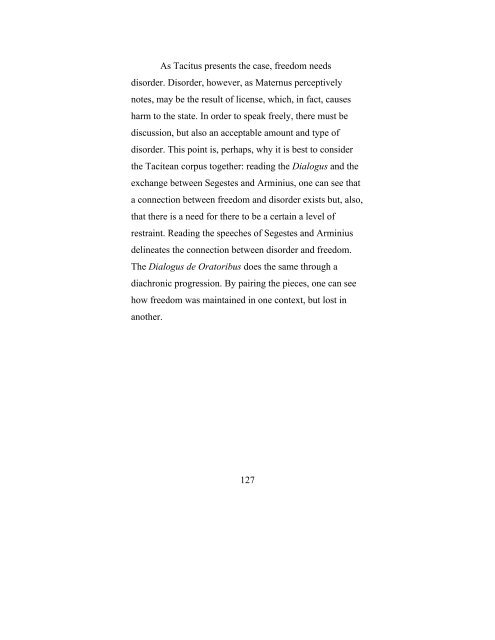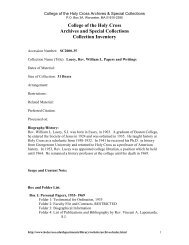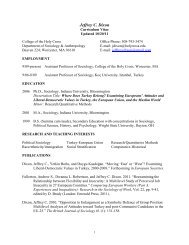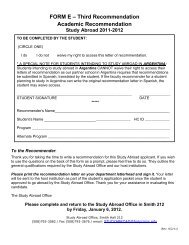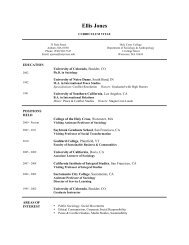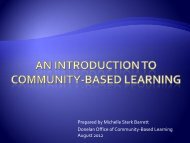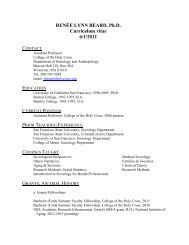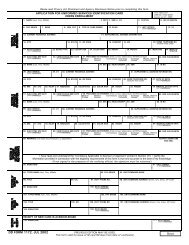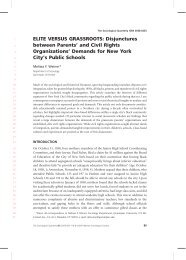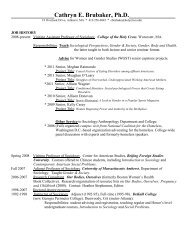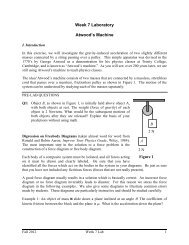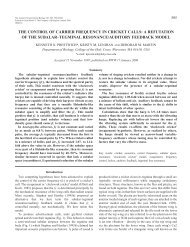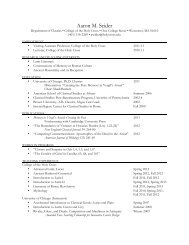Here - Academics - College of the Holy Cross
Here - Academics - College of the Holy Cross
Here - Academics - College of the Holy Cross
Create successful ePaper yourself
Turn your PDF publications into a flip-book with our unique Google optimized e-Paper software.
As Tacitus presents <strong>the</strong> case, freedom needs<br />
disorder. Disorder, however, as Maternus perceptively<br />
notes, may be <strong>the</strong> result <strong>of</strong> license, which, in fact, causes<br />
harm to <strong>the</strong> state. In order to speak freely, <strong>the</strong>re must be<br />
discussion, but also an acceptable amount and type <strong>of</strong><br />
disorder. This point is, perhaps, why it is best to consider<br />
<strong>the</strong> Tacitean corpus toge<strong>the</strong>r: reading <strong>the</strong> Dialogus and <strong>the</strong><br />
exchange between Segestes and Arminius, one can see that<br />
a connection between freedom and disorder exists but, also,<br />
that <strong>the</strong>re is a need for <strong>the</strong>re to be a certain a level <strong>of</strong><br />
restraint. Reading <strong>the</strong> speeches <strong>of</strong> Segestes and Arminius<br />
delineates <strong>the</strong> connection between disorder and freedom.<br />
The Dialogus de Oratoribus does <strong>the</strong> same through a<br />
diachronic progression. By pairing <strong>the</strong> pieces, one can see<br />
how freedom was maintained in one context, but lost in<br />
ano<strong>the</strong>r.<br />
127


